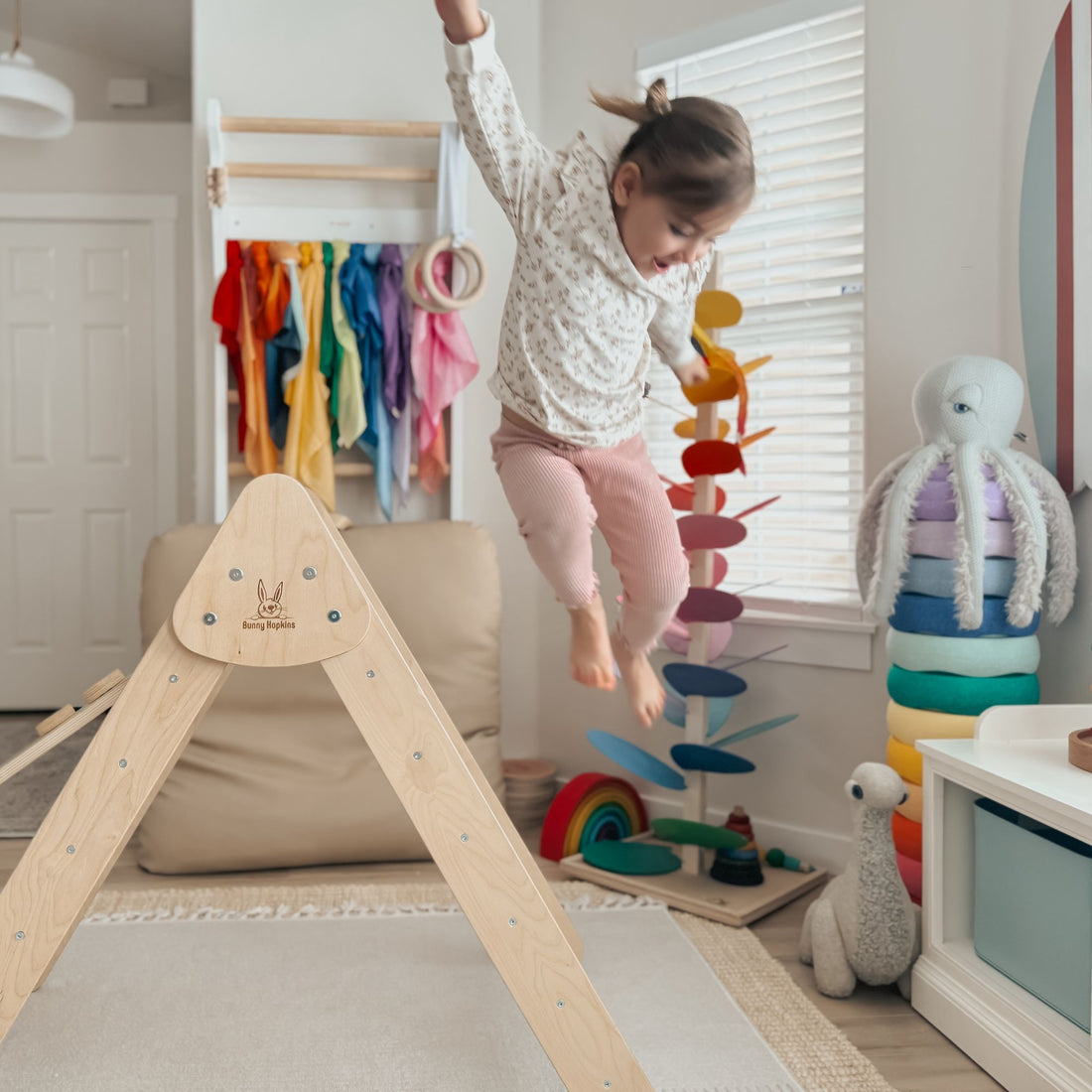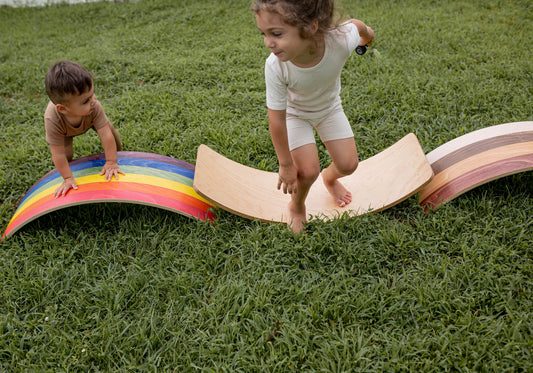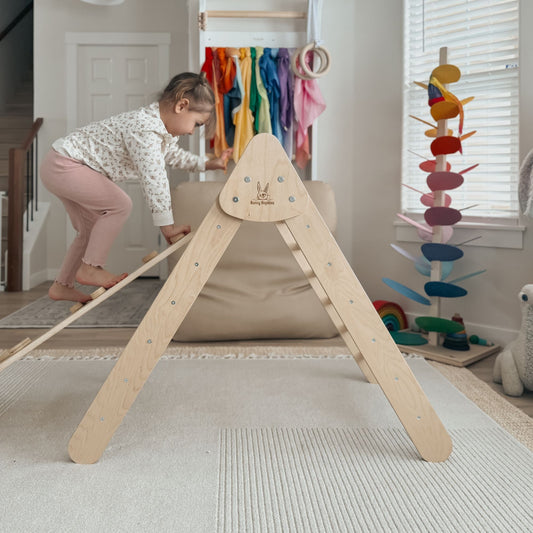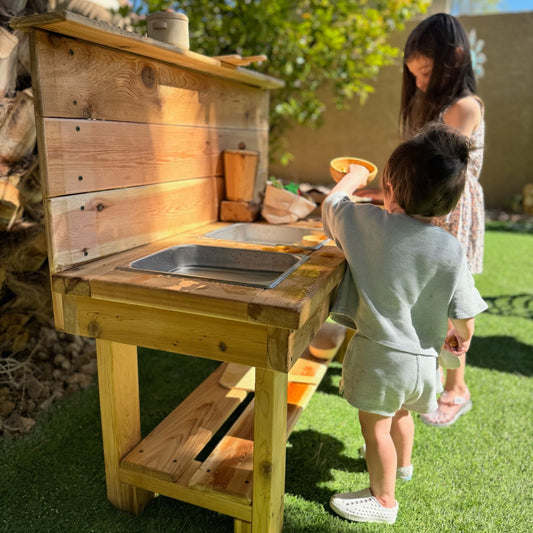
Waldorf vs. Montessori - What's the Difference?
Mary TaylorShare
As parents and educators, we often seek the best educational approaches to support our children's growth and development.
Two prominent philosophies that have gained widespread recognition and popularity are Waldorf and Montessori. Both approaches emphasize child-centered learning and holistic development, but they differ in their methodologies and perspectives. In this blog post, we will delve into the key principles, benefits, and distinctions of Waldorf and Montessori philosophies, shedding light on how they promote children's play and overall development.
Waldorf Philosophy
The Waldorf educational philosophy, developed by Rudolf Steiner in the early 20th century, is rooted in the belief that education should foster imagination, creativity, and a love for learning. The core principles of Waldorf education include:
Holistic Development: Waldorf education aims to nurture children's intellectual, emotional, physical, and spiritual dimensions. It recognizes the importance of cultivating a balanced and well-rounded individual.
Play and Imagination: Play is considered the primary mode of learning in Waldorf schools. Children engage in unstructured, imaginative play, allowing their creativity to flourish and fostering a deep connection with their environment.
Delayed Academics: In the early years, Waldorf schools prioritize experiential and sensory-based learning rather than formal academics. Children are encouraged to explore their natural surroundings, engage in practical activities, and develop a strong foundation for later academic pursuits.
Artistic Expression: The arts play a central role in Waldorf education. Through activities such as painting, drawing, music, and storytelling, children develop their artistic abilities, imagination, and self-expression.
Montessori Philosophy
Developed by Maria Montessori in the early 20th century, the Montessori philosophy centers on the belief that children possess an innate desire to learn and explore. The key principles of Montessori education include:
Individualized Learning: Montessori education recognizes that each child has unique learning needs and capabilities. It emphasizes individualized instruction and self-paced learning, allowing children to progress at their own speed.
Prepared Environment: Montessori classrooms are carefully prepared environments that feature a range of materials and activities. These materials are designed to promote independence, concentration, and the development of essential skills.
Practical Life Skills: Montessori education emphasizes the development of practical life skills, such as self-care, fine motor skills, and everyday tasks. These activities not only foster independence but also lay the foundation for future academic learning.
Sensorial Exploration: Montessori materials are designed to stimulate the senses and enhance cognitive development. Through hands-on experiences, children refine their senses, develop concentration, and build a solid understanding of concepts.
Differences and Benefits
While both Waldorf and Montessori philosophies share a child-centered approach, they differ in various aspects:
Play vs. Academics: Waldorf education emphasizes imaginative play and delayed academics, focusing on holistic development. In contrast, Montessori education integrates academics from an early age, emphasizing individualized learning.
Classroom Environment: Waldorf classrooms often feature natural materials, soft colors, and open-ended toys to create a warm, home-like atmosphere. Montessori classrooms provide a structured environment with specific learning materials accessible to children.
Teacher's Role: In Waldorf education, teachers play a guiding role, providing a nurturing environment and offering creative activities. Montessori teachers act as facilitators, observing and guiding children's exploration of materials and concepts.
The benefits of Waldorf education include fostering creativity, imagination, and holistic development. It promotes a sense of wonder and connection with nature. Montessori education, on the other hand, encourages independence, self-motivation, and the development of practical life skills. It cultivates a strong sense of order and responsibility.
Conclusion: What's Best for Your Child?
Both Waldorf and Montessori philosophies offer distinct approaches to child development and education. While Waldorf education focuses on imaginative play and holistic development, Montessori education emphasizes individualized learning and practical life skills. Understanding the key principles and differences between these philosophies enables parents and educators to make informed decisions based on their child's unique needs and preferences. Ultimately, both approaches share the goal of nurturing children's love for learning and supporting their overall growth and development.
Tailoring to Individual Needs
Choosing the right educational philosophy often depends on observing how your child responds to different learning environments. Some children may thrive in the structured, self-directed environment of a Montessori classroom, while others may flourish with the imaginative, artistic focus of Waldorf education. By considering your child's unique personality, interests, and learning style, you can select an approach that best supports their growth and happiness.



